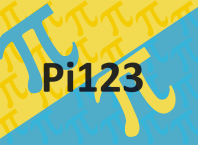As per the official notification released by GMAC, the length of GMAT exam has been reduced by 30 minutes, that is, the total time for the test is 3.5 hours instead of 4 hours. Alongside amendments made in the time duration to complete GMAT, authorities have also made certain changes to the paper pattern. The number of Research questions in Quantitative Aptitude and Verbal Ability has been reduced by the authority.
Click to get latest updates on GMAT in German
There will still be four sections in the test- Integrated Reasoning, Analytical Writing, Quantitative Aptitude and Verbal Reasoning. Other two sections, Integrated Reasoning and Analytical Writing (AWA) have remained same. Apart from this, optional break structure (2 breaks, 8 minutes each) and score preview time are also same. For your reference, we have tabulated below the new and old examination structure.

Candidates will still have the option for section selection, keeping it unchanged. There is no correct or recommended section order. Candidates can make choices as per their sectional strengths and testing preferences, thus giving them flexibility and more control over the test. The options available for exam’s sectional order are:
- Analytical Writing Assessment, Integrated Reasoning, Verbal Reasoning, Quantitative Aptitude
- Verbal Reasoning, Quantitative Aptitude, Integrated Reasoning, Analytical Writing Assessment.
- Quantitative Aptitude, Verbal Reasoning, Integrated Reasoning, Analytical Writing Assessment.
Contents
Why has this change been introduced?
GMAC has shortened the exam timing so as to provide applicants the best test-taking experience. It was earlier found that the candidates felt rushed through the tutorial screens at test centre prior to starting of the examination. They reviewed and simplified much of the content on several non-exam screens and have made the tutorial in advance. Therefore, GMAC identified shortening the duration as a way to overcome the issue without impacting the way the scores are secured.
What does this change mean for candidates?
This change is unlikely to affect the candidates in any manner. As the number of scored questions will remain constant, the scoring pattern will remain unaffected. Also, there will be no change in terms of security, validity, reliability and integrity of GMAT. Additionally, average time for each question will not change.
For Quantitative Reasoning section, there will be a total of 31 questions which need to be attempted within 62 minutes, thus giving approximately 2 minutes for each question. However, for Verbal Reasoning section, there will be a total of 36 questions which needs to be attempted within 65 minutes, thus giving approximately 1 minute 45 seconds (108 seconds) for each question.
Will there be any impact on the scores?
As it has been already mentioned that though there is reduction in time limit, number of questions have also been reduced. The weight of Reading Comprehension has not changed. RC has always accounted for one third of the total GMAT score and it will be same now. Tutorial screens, Quantitative, Verbal section, Optional Breaks and Score preview time remain unchanged.
There will not be any impact on the number of scored questions in each section. Only the unscored questions in Quantitative and Verbal section have been reduced. But unscored questions ill still remain in each section, so that it is possible to research and pre-test the exam questions and ensure their quality before counting them as scored questions.
Do the applicants need to modify their preparation strategy for new pattern for GMAT?
As there is no change in the format of questions or the content of GMAT, candidates need not change or study any additional topics for the test. As only the section time has been reduced, average time per question has still not changed. What candidates are required to do is not to spend 75 minutes in Verbal and 75 minutes in Quant sections.
Also, as noticed, concentration starts dropping after an hour. So, as the test will itself be of 62 minutes, candidates need not worry about that. Scoring methodology has thus remain constant.
In any way, is this pattern going to affect the Enhanced Score Report (ESR)?
For GMAT, GMAC with consideration to shortened sections, will introduce minor updates in ESR. However, these changes will only include removal of references to any specific number of questions in each section (cosmetic updates).












